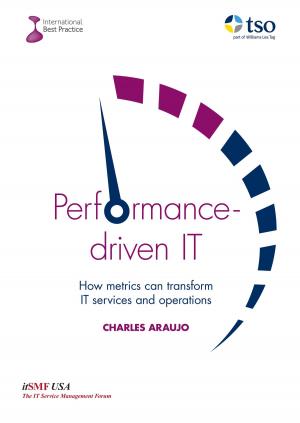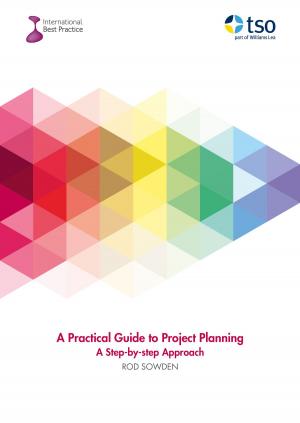ITIL Service Operation
Business & Finance, Management & Leadership, Management, Nonfiction, Reference & Language, Education & Teaching| Author: | AXELOS | ISBN: | 9780113313198 |
| Publisher: | The Stationery Office Ltd | Publication: | July 29, 2011 |
| Imprint: | TSO | Language: | English |
| Author: | AXELOS |
| ISBN: | 9780113313198 |
| Publisher: | The Stationery Office Ltd |
| Publication: | July 29, 2011 |
| Imprint: | TSO |
| Language: | English |
The ITIL Service Operation stage of the ITIL framework highlights best-practice for delivering IT to meet agreed service levels for both business users and customers. ITIL Service Operation also includes the day-to-day management of technology needed to deliver and support services.
The efficient delivery of agreed services is essential to maintain business satisfaction and confidence in IT. It reduces the risk of service outages, and ensures that authorized levels of access are consistently available.
The guidance included in this publication describes the processes, technology, and activities required to deliver services, and also the people who control how practices are applied. It is relevant for any professional involved in the management of services, but particularly IT managers and practitioners, IT operations and support, service desk management and staff, technical management staff and application management personnel
Key benefits
• Controls service outages and reduces their impact
• Maximizes value of services for the business
• Monitors performance and benefits, providing data for continual improvement and investment planning
• Protects IT security by upholding authorized access levels
• Automates operations, increasing efficiency and competitive advantage
Anyone considering ITIL professional accreditation should note that this is the only source from which the ITIL exam questions are taken.
The ITIL Service Operation stage of the ITIL framework highlights best-practice for delivering IT to meet agreed service levels for both business users and customers. ITIL Service Operation also includes the day-to-day management of technology needed to deliver and support services.
The efficient delivery of agreed services is essential to maintain business satisfaction and confidence in IT. It reduces the risk of service outages, and ensures that authorized levels of access are consistently available.
The guidance included in this publication describes the processes, technology, and activities required to deliver services, and also the people who control how practices are applied. It is relevant for any professional involved in the management of services, but particularly IT managers and practitioners, IT operations and support, service desk management and staff, technical management staff and application management personnel
Key benefits
• Controls service outages and reduces their impact
• Maximizes value of services for the business
• Monitors performance and benefits, providing data for continual improvement and investment planning
• Protects IT security by upholding authorized access levels
• Automates operations, increasing efficiency and competitive advantage
Anyone considering ITIL professional accreditation should note that this is the only source from which the ITIL exam questions are taken.















